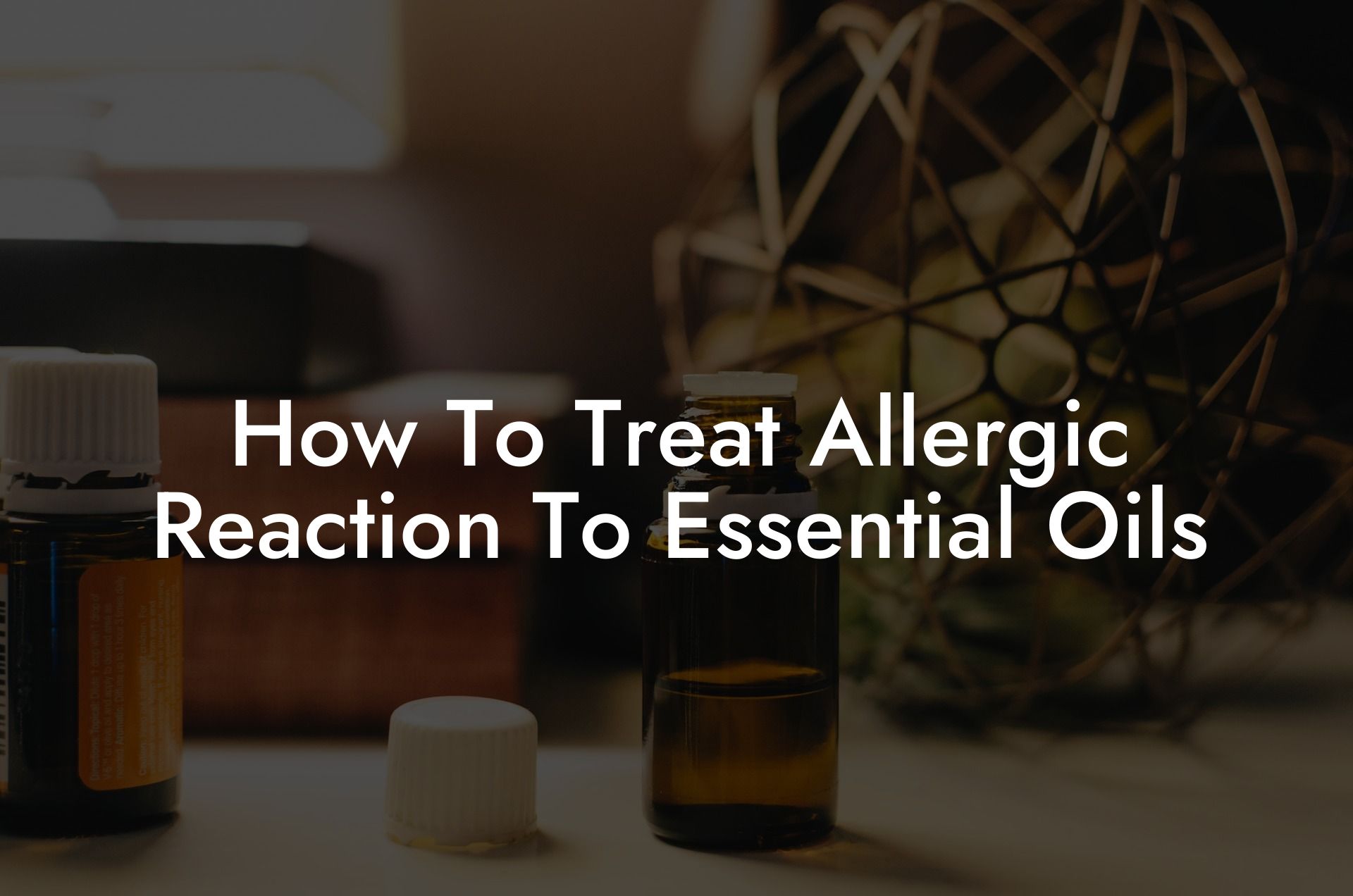Essential oils offer numerous benefits to our overall wellbeing, helping us achieve balance and harmony in our busy lives. However, when allergies come into play, even these natural, botanical substances can cause adverse reactions. In this comprehensive guide, we’ll explore how to identify and treat allergic reactions to essential oils, so you can continue reaping the rewards of aromacology without hindrance.
Table of Contents
Understanding Allergic Reactions to Essential Oils
Allergic reactions to essential oils are uncommon, but they can occur due to individual sensitivities or improper usage. There are three types of reactions you may encounter:
- Contact dermatitis: This localized skin reaction occurs when the essential oil comes into contact with the skin, causing redness, itching, and sometimes blisters.
- Respiratory allergies: Inhaled essential oils may provoke coughing, sneezing, and difficulty breathing, particularly in individuals with asthma or other respiratory conditions.
- Systemic reactions: These severe allergic reactions are rare and involve symptoms like nausea, vomiting, low blood pressure, and difficulty breathing or swallowing.
Preventing Allergic Reactions: Patch Tests and Dilution
Prevention is always better than treatment. To mitigate the risk of developing an allergic reaction to essential oils, follow these tips:
- Patch test: Before applying essential oils to large skin areas, conduct a patch test on a small, non-sensitive skin spot, such as the inside of your wrist. If redness or itching occurs, avoid using that essential oil.
- Dilution: Always dilute essential oils with a carrier oil, like coconut or jojoba, before applying them to your skin. This lowers the concentration of the essential oil and decreases the likelihood of a reaction. A safe guideline is a 1-2% dilution, meaning 1-2 drops of essential oil per teaspoon of carrier oil.
- Choose quality: Make sure to use pure, high-quality essential oils that are free from synthetic additives, which may cause allergies.
How to Treat a Mild Allergic Reaction
If you experience a mild allergic reaction, such as contact dermatitis, follow these steps:
- Remove the essential oil: Gently wash the affected area with soap and water to remove any traces of the essential oil.
- Apply a soothing agent: Use aloe vera gel or hydrocortisone cream to help soothe and reduce inflammation.
- Take an oral antihistamine: Over-the-counter antihistamines, like Benadryl, can help alleviate itching and other allergy symptoms.
- Rest and monitor: Give your body time to recover, and monitor your symptoms for any worsening. If necessary, consult a healthcare professional.
When to Seek Medical Attention
Call your doctor or go to an emergency room immediately if you experience any of the following severe symptoms, which may indicate a systemic reaction:
- Difficulty breathing or swallowing
- Swelling of the face, tongue, or throat
- Low blood pressure, dizziness, or fainting
- Rapid heartbeat or chest pain
Remember, it’s essential to listen to your body and act accordingly when experiencing any adverse reactions.
How To Treat Allergic Reaction To Essential Oils Example:
Meet Emily, a wellness enthusiast who recently started using essential oils. One day, she decided to use a new oil blend in her diffuser. Soon, she experienced itching, sneezing, and watery eyes. Concerned, she turned off her diffuser and aired out her space. Realizing she likely had an allergy to one of the oils, Emily consulted her aromacologist and discovered that she was sensitive to an ingredient in the blend. With this newfound knowledge, Emily was able to adjust her oil usage to avoid further allergic reactions and continue enjoying the benefits of aromacology.
Allergic reactions to essential oils may seem daunting, but with prevention and prompt treatment in mind, you can continue to indulge in these life-enhancing botanicals while minimizing any adverse side effects. We hope this guide has provided you with valuable tips for a safer aromacology journey. Feel free to share this article with fellow oil enthusiasts who may benefit from this knowledge, and don’t forget to explore other insightful guides on Oshu Oils’ blog and peruse the exquisite range of essential oils they offer.





















